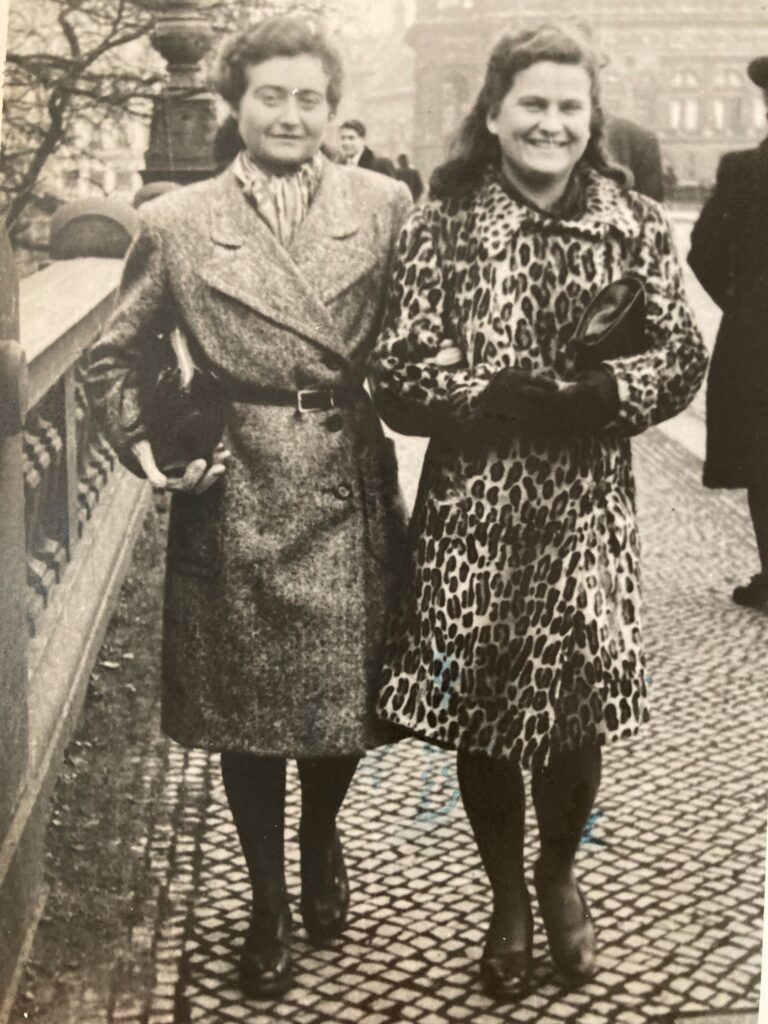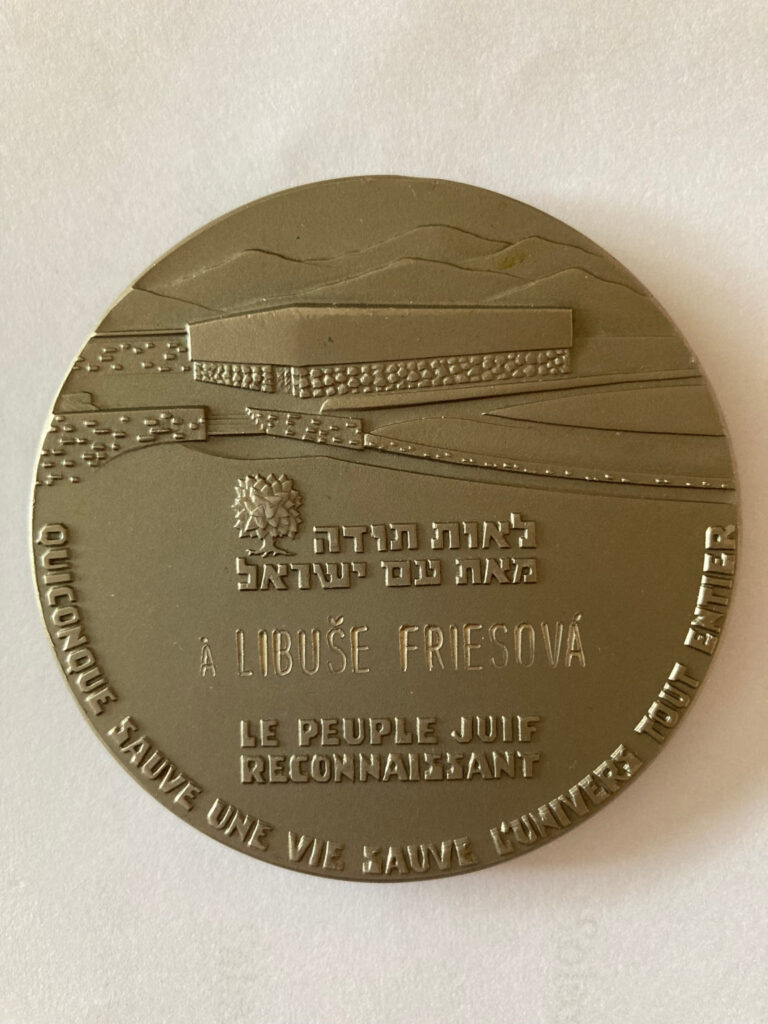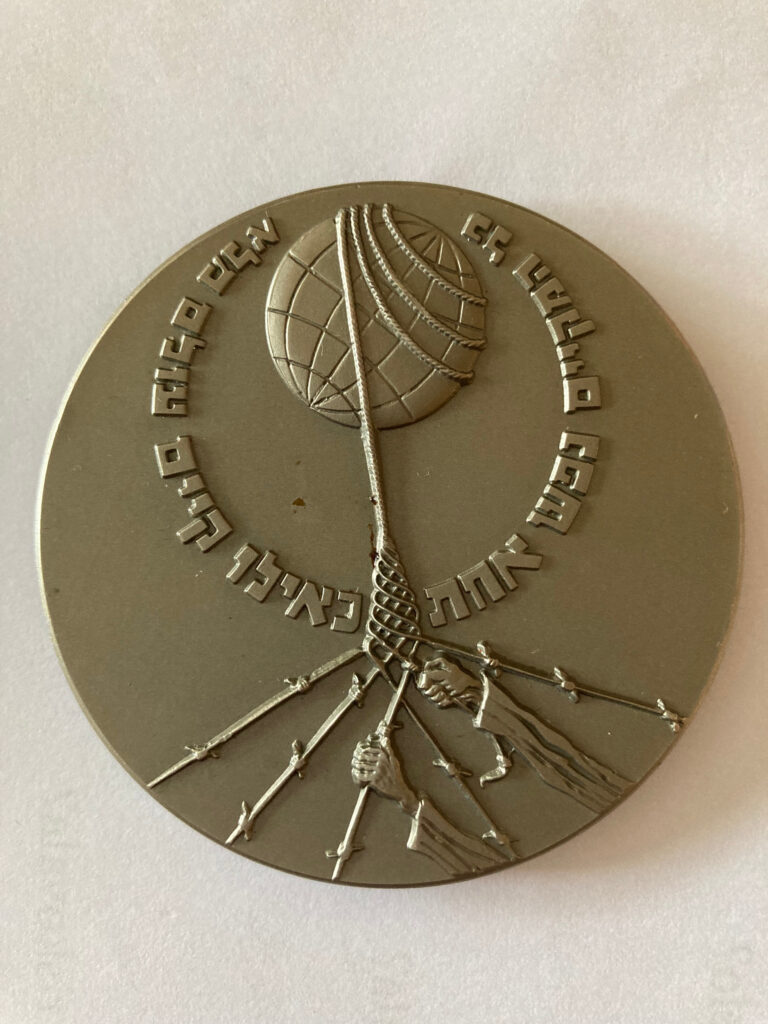Let us recall the life story of an exceptional woman, Libuše Friesová who was awarded in 1999 the title Righteous among the Nations for saving the lives of four people. The award-giving ceremony at the Israeli Embassy in Prague was attended, among other people, by two of the saved women, namely her sister-in-law Erna Seykorová (Friesová) and her friend Anna Lankavicová (Chaja Shen). Libuše Friesová would have celebrated her 100th birthday in August 2023.
Libuše Friesová, née Vávrová, was born on August 22, 1923 at Všenory near Prague where her father, a World War I invalid, ran a tobacconist shop and a funeral parlor. The Vávra family had a total of five children (one of the boys died in his childhood). This was a Catholic family even though not extremely religious. In the fall of 1941 Libuše was employed in a small workshop of the Prague-based company Chaloupka, Precision Mechanics, which manufactured, among other products, immersion heaters for the army. In her job she got acquainted with the love of her life, Egon Fries (1921–1996), one of the Jewish employees of that company. He came from an assimilated Jewish family.
From 1939 onwards, Egon and his younger sister Erna (1922–2014) belonged to a Jewish left-wing resistance group of young people who kept in touch with the banned communist party. Both were active in a cell distributing publicity documents and leaflets. Libuše met and befriended Erna when she came to see the latter at Terešov near Zbiroh at the request of Erna´s parents. For her part, Erna was keen on disseminating communist and socialist ideas among the leftist-oriented Zionist Jewish youth who worked at a local farmstead. Erna´s parents were then worried about their daughter because a short time earlier Egon had received a summons to a transport to Terezín on December 4, 1941.
During the first months of 1942 Libuše set out to meet Egon in Terezín on three occasions; she had to brief the authorities which particular civilian inhabitants still living there she wanted to visit. On the first occasions she met Egon in a carpenter workshop where she gave him some food and cigarettes. During her second visit she spent the night in the flat of a random acquaintance to be able to meet Egon early next morning at the Bohušovice train station where he was unloading wagons with a group of other inmates. She brought him an identity card and a wig but Egon refused to escape not wanting to threaten the lives not only of his fellow prisoners but also of Libuše and her parents in case they would later have to hide him. During her third visit she had even pinned a Star of David on her clothes and spent the night with Egon in the Sudeten Barracks.
Starting in March 1942, Libuše went to see him at Dubí near Kladno where Egon was working together with other inmates in the Prago black coal mine. The two would meet in a grove not far from the coal-pit. In addition to food Libuše would also bring him cigarettes to bribe the gendarmes guarding the inmates in the barracks. She sent letters and parcels to the address of miner Karel Pajskr. It was this man who passed on to Egon the news from Alena Divišová (later Mrs. Hájková) about the arrest of his sister Erna and his dear Libuše by the Gestapo. Let us add in passing that out of her friendly nature Alena also helped some members of the left-wing Jewish youth to go underground. This happened soon after the village of Lidice had been razed to the ground. Assisted by his friends among the miners, in between his mining shifts, Egon set out to Prague on a borrowed bicycle to meet Alena and find out more information.
And he learnt the following: his sister Erna failed to report for a transport, as summoned together with her parents in April 1942, and just as her friends at Terešov she went underground. As a good friend Libuše first hid Erna in her parents´ house at Všenory. Then she complied with Erna´s request and gave the girl her own identity card (later reporting to the police she had lost it). Meanwhile, Erna lived in a rented flat in Prague with Libuše´s support. Later on, Erna volunteered for labor deployment in the “Reich” and left for Vienna, working there in a pub. Unluckily, the fraud involving the shared identity card had been uncovered and both girls were detained by the Gestapo. Erna was taken to Prague where she met Libuše. She spent approximately six months in detention and in March 1943 she was transported to the Terezín Ghetto. Libuše was sentenced as a minor to a one-year imprisonment, serving her term at Řepy, in Liberec and Litoměřice. She was released from the Litoměřice prison after nine months. She was then re-employed by the Prague-based company making immersion heaters which had meanwhile come into German ownership.
In July 1943 Egon returned from his labor deployment in Kladno to the Terezín Ghetto where he met his sister Erna and his parents. He learnt that up to her own arrest Libuše had selflessly kept sending them food parcels “via somebody”.
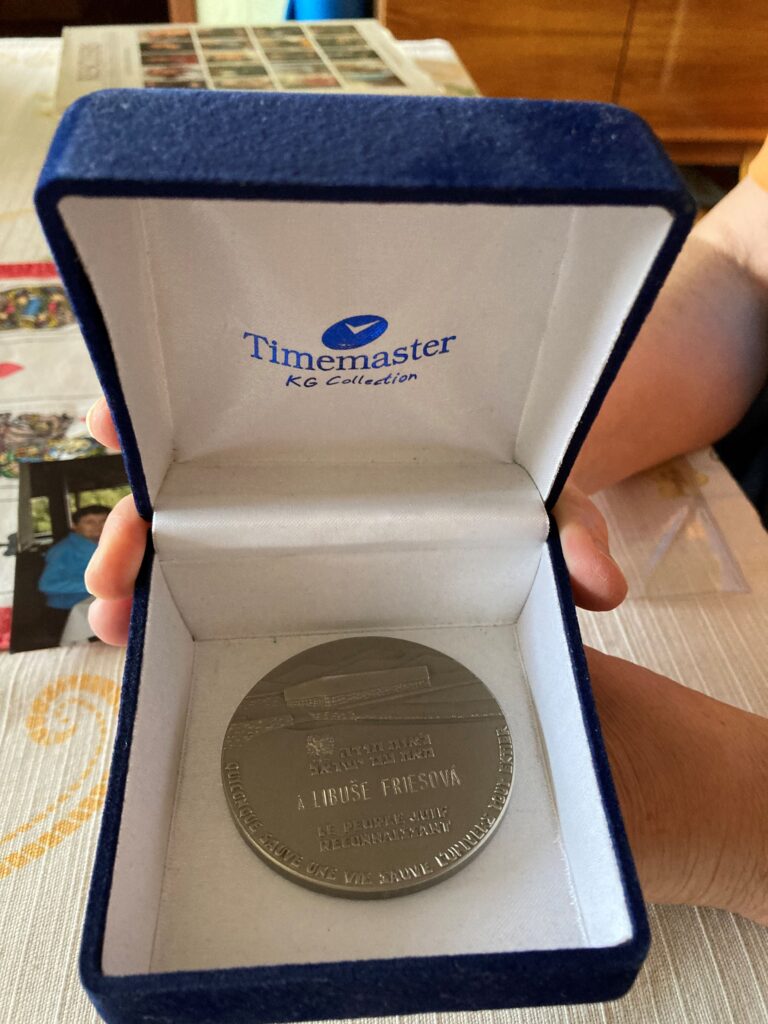
After her release from the prison Libuše resumed her correspondence with Egon who worked in Ghetto as a cook, initially in the Vrchlabské (Hohenelbe), later in the Magdeburg Barracks, trying his best to improve his parents´ diet. However, he was interrogated and arrested in November 1943 for proved theft of food in the kitchen and was assigned to a transport to the East – to the Auschwitz-Birkenau death camp in the following month. Erna was deported to the same camp in May 1944 and their parents perished there in October of the same year. Libuše kept sending food parcels to Egon both to Auschwitz-Birkenau (from March1944) and to the Schwarzheide camp (from December 1944) to which he had been moved.
Early in February 1945 Erna phoned Libuše at work and told her that she and three of her fellow prisoners had escaped from the death march heading from the Christianstadt camp, a branch of the Gross-Rosen concentration camp, and was just staying in Prague. Her escape succeeded, among other reasons, thanks to the money Libuše had sent Erna to the camp together with food, addressed to one of the bricklayers, a civilian employee at the camp, who supervised the inmates´ work. Libuše met the escapees in Prague and contacted the parents of Alena Divišová who provided the girls a hideaway for a few nights in a bungalow in allotments in Vysočany district. They were also hidden in the weekend house of the well-known surgeon, Dr. Arnold Jirásek at Vrané near Štěchovice and in a bungalow by the Sázava river near Davle. Libuše kept them supplied with food.
Arnošt Kruh, a friend of Alena Divišová, who belonged to the group of young Jews at Terešov, eventually helped to legalize Erna´s identity. From Berlin, where he was illegally staying, he sent her a forged affidavit saying that the house of the person concerned had been bombed out. Libuše then gave Erna an identity card of her own friend Lída Semerádová, entering a false name: Vlasta Marešová. Thanks to that, Erna could find a job in a warehouse keeping Germany army uniforms, earned extra money by translations, gave private French-language lessons and managed to live in Prague until the end of the war.
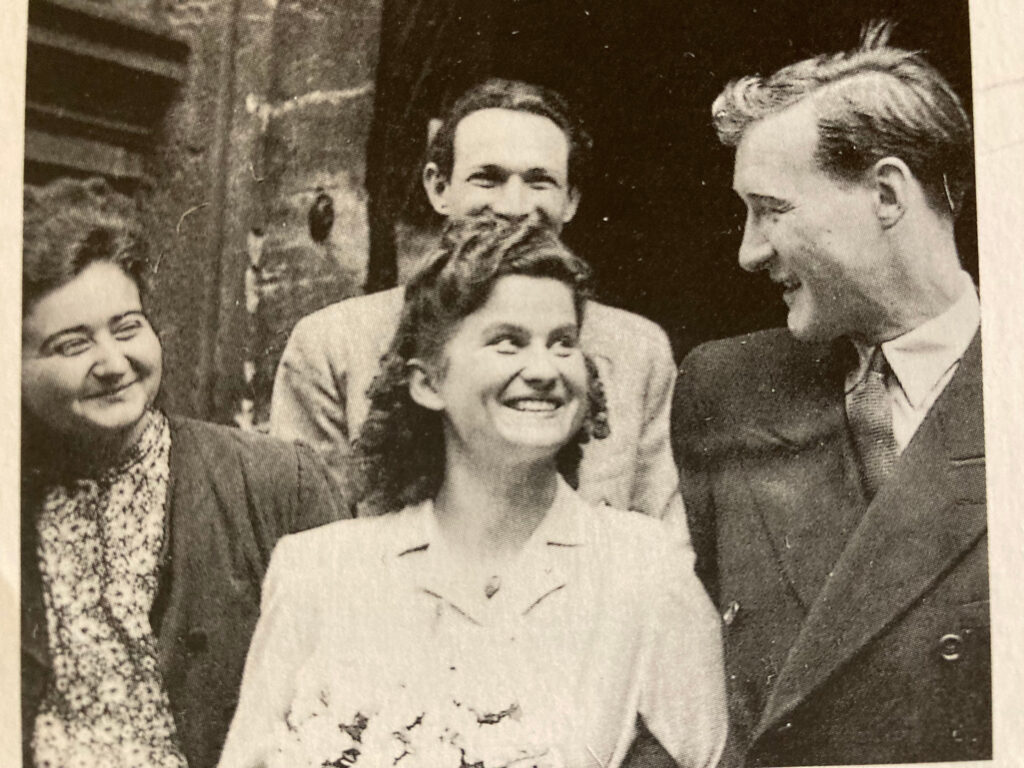
Egon got back to the Terezín Ghetto in May 1945 with a death transport coming from the Schwarzheide camp. After liberation he was reunited with Libuše in Prague, in the flat of the Jordán family, parents of Egon´s former classmate, in Prague´s Vinohrady district. One year after the war ended Libuše and Egon got married, living first in Prague where Egon worked as a newspaper editor, later as a secretary in the Rudé právo daily. He had to leave the editorial office during the period of anti-Zionist show trials in the early 1950s. In1952 he moved with his wife and their two daughters, Marta (b. 1948) and Libuše (b. 1950), to Ústí nad Labem, initially being employed as a newspaper editor and then, during the years 1964–1969, as editor-in-chief of the weekly magazine Průboj. Starting in January 1968, his reporters could write their articles virtually without any censorship. However, after August 1968 Egon was dismissed from his job at the magazine and up to his retirement he worked as a laborer in a chemical factory in Ústí even though he had university training and spoke five foreign languages. His wife stood faithfully by his side all the time. Libuše Friesová passed away quietly on April 11, 2015 at the age of 91 years.
Sylvie Holubová

